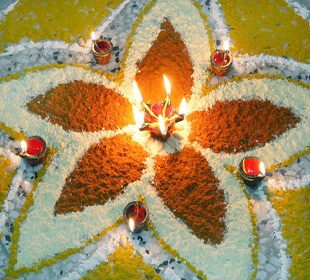Editor’s Note: It is again that time of the year when different states across India will be celebrating the dawn of a New Year. So, as preparations for all the festivities and merriment is on the way, here’s some information shared by our member rkgurbani. It is sure to increase your IQ quotient. And if you have any more trivia on this topic then do share them with us here.
The Hindu calendar has begun a New year from today and most Hindu communities celebrate this special start in a great way. It is not necessary that all the regions have their new year on the same day. The month of Chaitra marks the beginning of the year for most communities.
Ugadi in Andhra Pradesh and Karnataka
The Telugu and the Kannada New Year falls on the first day of the month of Chaitra (March-April). People in Andhra Pradesh and Karnataka states in the South of India believe that Lord Brahma began the creation of the universe on this auspicious day of Ugadi.
Guddi Padwa in Maharashtra and Goa
In Maharashtra, the new year is celebrated as Gudhi Padwa – a festival that heralds the advent of spring (March-April). Early on the morning of the first day of the Chaitra month, people finish their ablutions, wear new clothes and decorate their houses with colorful “rangoli” patterns. A silk banner is raised and worshiped, and greetings and sweets are exchanged. People hang “gudhis” on their windows on this day to celebrate Mother Nature’s bounty. A “gudi” is a decoratedpole with a brass or a silver vessel placed on it.
Chetti Chand for Sindhis
Cheti Chand falls on on the first day of the month of Chaitra, also called ‘Cheti’ in Sindhi. This day is observed as the birthday of Jhulelal, the patron saint of the Sindhis. On this day, Sindhis worship Varuna, the water god and observe a number of rituals followed by feasts and devotional music.
Baisakhi in Punjab
“Baisakhi”, traditionally a harvest festival, is celebrated on the 13th of April every year, marking the Punjabi New Year. People celebrate the joyous occasion by performing Bhangra and Giddha.
Poila Baisakh in Bengal
The first day of the Bengali new year falls on the 13th or 14th of April every year. All new enterprises begin on this auspicious day, as businessmen open their fresh ledgers with “Haal Khata”- a ceremomy in which Lord Ganesha is summoned and customers are invited to settle all their old dues and offered free refreshments.






